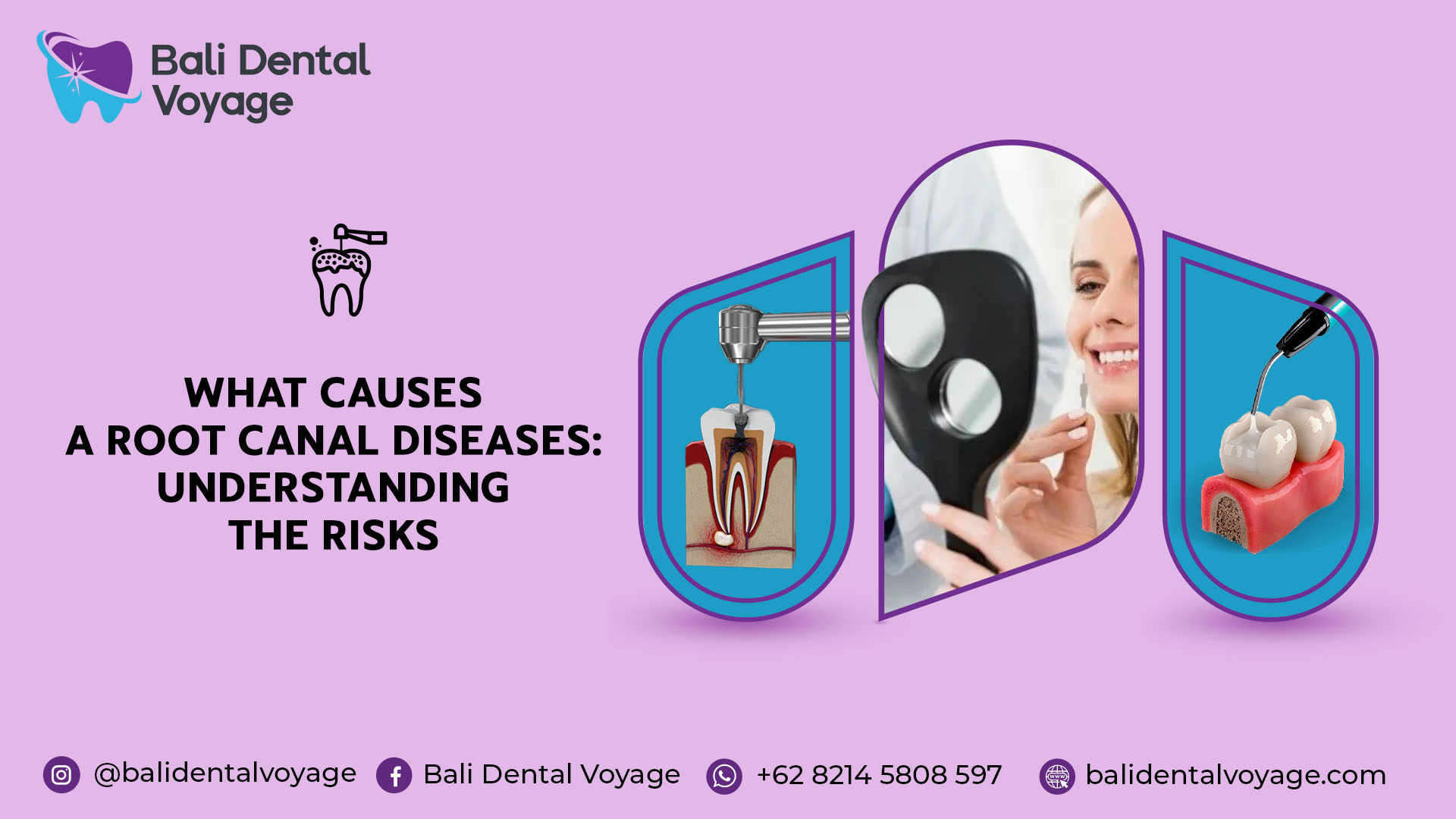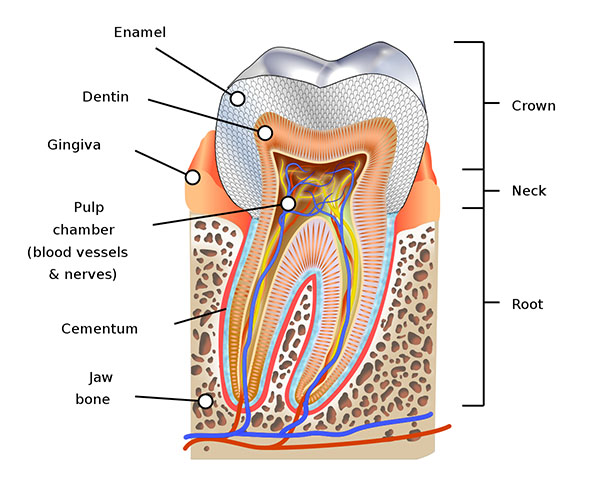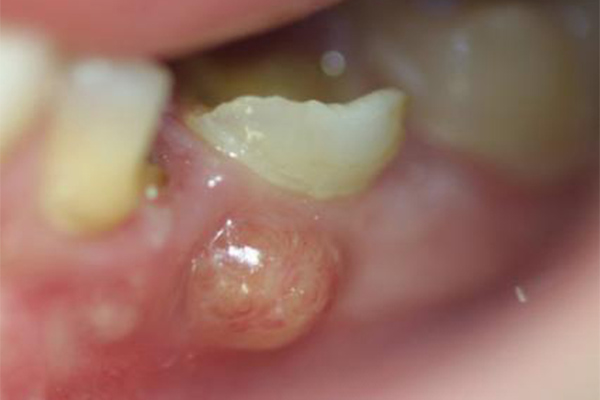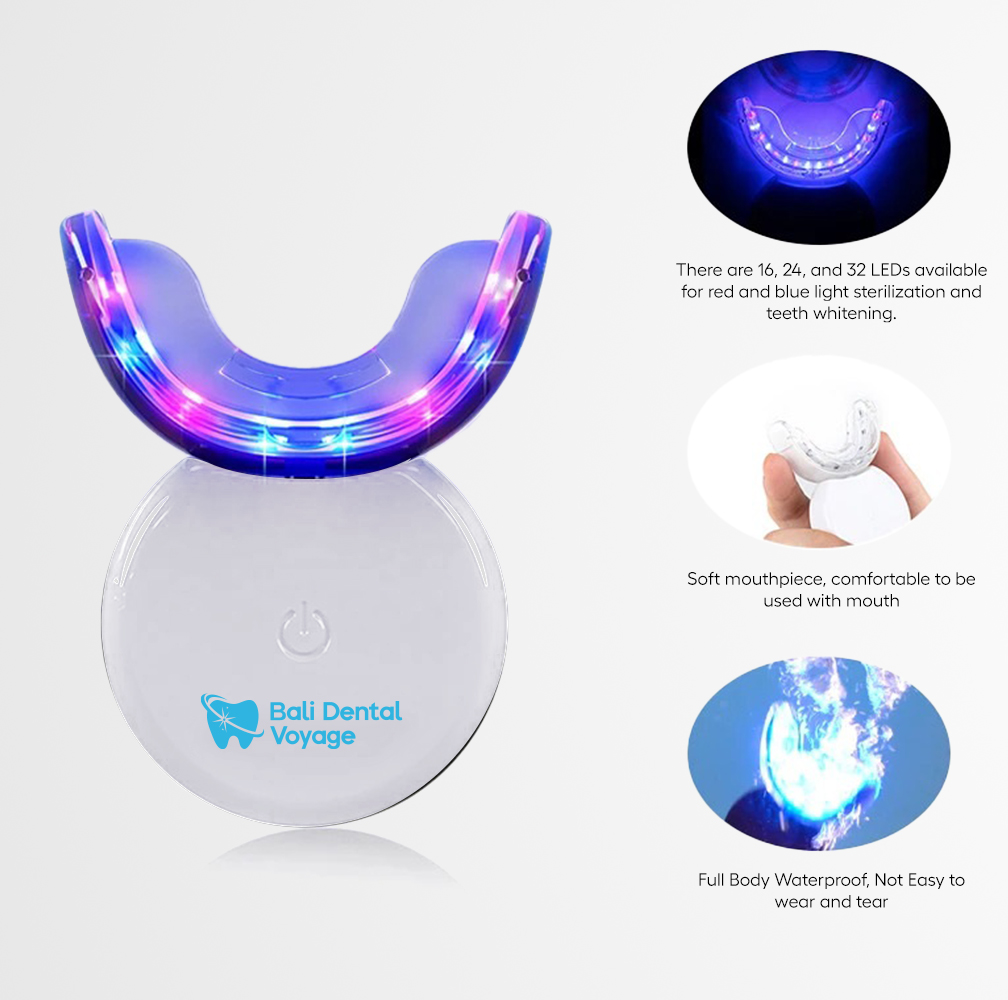
A root canal treatment is a dental procedure that is performed to save a severely damaged or infected tooth. It involves removing the infected pulp from the tooth’s root canal system and sealing it to prevent further infection. Understanding what causes a root canal and the associated risks is important for maintaining good oral health and making informed decisions about dental treatment.
Table of contents:
- Dental Anatomy and Tooth Morphology
- What Causes a Root Canal
- Health Risks of Root Canal
- Prevent Root Canal
Understanding what causes a root canal infection is essential for comprehending the significance of this dental procedure and the risks associated with it. A root canal treatment is a service performed to salvage a severely damaged or infected tooth, aiming to eliminate infection and preserve the tooth’s structure. By exploring the causes behind a root canal infection, individuals can make informed decisions about their oral health and seek appropriate preventive measures.
Dental Anatomy and Tooth Morphology

To understand the causes of a root canal infection, it is essential to have a basic knowledge of dental anatomy and tooth morphology.
Teeth are composed of several layers, including:
- Enamel
- Dentin
- Dental pulp
The dental pulp is the soft tissue inside the tooth that contains:
- Blood vessels
- Nerves
- Connective tissue
Each tooth also has a root canal system, which consists of small, narrow canals that extend from the pulp chamber to the roots.
What Causes Root Canal Diseases?
Dental Decay and Cavities as Common Causes
One of the primary causes of root canal diseases is dental decay and cavities. Tooth decay occurs when bacteria in the mouth produce acids that erode the tooth’s enamel, leading to cavities.
If left untreated, these cavities can progress deeper into the tooth, eventually reaching the dental pulp and causing an infection which is one of the major causes of root canal diseases.
Trauma and Tooth Fractures as Contributing Factors
Trauma and tooth fractures can also lead to the need for a root canal treatment. Sports injuries, accidents, or even biting down on a hard object can cause severe damage to a tooth.
When the tooth is cracked or fractured, it creates an entry point for bacteria, which can infect the dental pulp and require a root canal procedure.
Progressive Tooth Decay and Pulp Inflammation
Untreated cavities and dental decay can progressively worsen, leading to inflammation of the dental pulp. As the infection spreads, it can cause severe pain, sensitivity, and swelling.
If the inflammation is not treated promptly, it can lead to pulp death and the need for a root canal treatment to remove the infected pulp.
Health Risks of Root Canal Diseases

While root canal treatments are generally safe and effective procedures, there are potential health risks of root canal diseases involved.
It’s important to be aware of these risks before undergoing treatment:
- Infection and Abscess Formation
In some cases, a root canal procedure may not eliminate the infection, leading to persistent or recurrent infection. This can result in the formation of an abscess, which is a collection of pus in the surrounding tissues.
Abscesses can cause significant pain and require additional treatment to resolve the infection.
- Reinfection and Failed Root Canal Treatment
In rare cases, a root canal treatment may fail to fully eliminate the infection or bacteria may re-enter the treated tooth. This can result in reinfection, which may require retreatment or extraction of the tooth.
Factors that can contribute to failed root canals treatment include:- Complex tooth anatomy
- Inadequate cleaning of the root canals
- A compromised immune system
Prevent Root Canal Diseases
Root canal diseases, such as infections and abscesses, can cause severe pain and lead to tooth loss if left untreated. Fortunately, there are several preventive measures you can take to keep your teeth and gums healthy:
- Practice Regular and Thorough Oral Hygiene
Brush your teeth at least twice a day with fluoride toothpaste and use dental floss or interdental brushes to remove plaque and food particles. - Maintain a Balanced Diet
Limiting sugary and acidic foods and drinks that can contribute to tooth decay. - Visit Your Dentist for Regular Check-Ups and Professional Cleanings
Your dentist can identify early signs of potential root canal issues and provide appropriate treatment to prevent them from worsening. - Consider Using Fluoride Mouthwash
A supplementary measure to strengthen tooth enamel and fight against bacteria.
By following these simple yet effective preventive measures, you can reduce the risk of root canal diseases and maintain a healthy smile. Remember, prevention is always better than cure when it comes to your dental health.
Pain-Free Root Canal Treatment in Bali With Bali Dental Voyage!
Our web-based booking system makes it convenient and hassle-free to schedule your root canal procedure. Our Bali dental clinic utilises the latest technology and techniques to ensure a comfortable and successful treatment.
Say goodbye to toothache and hello to a healthy smile! Book your root canal Bali today and enjoy the beautiful beaches and vibrant culture this island has to offer.
Trust Bali Dental Voyage for your dental needs and let us take care of your oral health while you enjoy your holiday in paradise.




